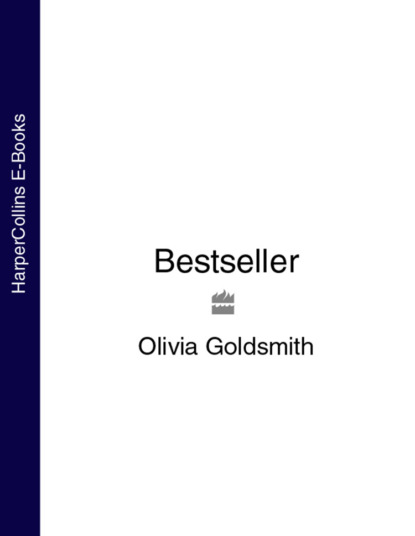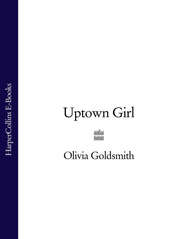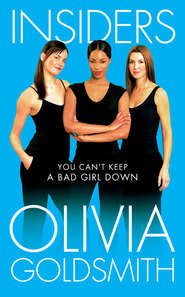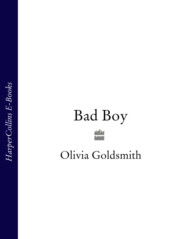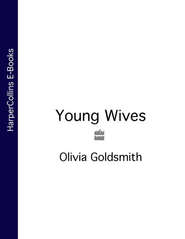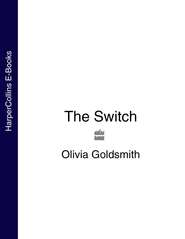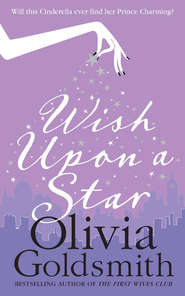По всем вопросам обращайтесь на: info@litportal.ru
(©) 2003-2025.
✖
Bestseller
Автор
Год написания книги
2019
Настройки чтения
Размер шрифта
Высота строк
Поля
Now the finished work sat before her, and looking at it, Judith shivered. Although she had invented Elthea, the heroine, Judith felt as if her character was real and Judith knew her: her desperation as her husband cheated and her marriage crumbled; the claustrophobia of being left with the three little boys; the fear and drabness of living on a single mother’s inadequate salary; her father’s refusal to give her financial help; her grasping at the chance for a new beginning with another man, and her hysteria when she lost him, too. Was it coincidence that the real murderess had been abandoned by three males and that she subsequently murdered three? Judith knew that while her fictional Elthea was not a typical sympathetic character, Judith’s own understanding and compassion for her had illuminated every page.
The truth was that Judith identified with Elthea. After all, hadn’t Judith been a victim of her father and of her first boyfriend back in Elmira? The book revealed more of her than she had planned. And perhaps, she thought, I’m also frightened now because I’m afraid no one will understand Elthea. Maybe that’s all it is. But a deeper voice told her that wasn’t all: Somewhere lurked the fear that without this book to talk about, Daniel might not talk to her at all.
“Well, Flaubert, I did it. This occasion justifies a Milk-Bone for you.” The dog gave her a bark.
Judith’s back was stiff, and all at once she felt as if she had to move. Slowly, she pushed away from the card table, stood up, and stretched. What was wrong with her? The book was finished. Daniel would be pleased, and tonight they would celebrate. She walked down the three steps that led to the kitchen and the hall closet. Daniel kept his suit and sports jackets in their bedroom wardrobe, and Judith used the hall closet as her own. She took down the blue wool dress, the one she had bought with her mother the last time they shopped together in Poughkeepsie. She held it up against herself, looking in the hall mirror. It brought out the blonder tones in her light brown hair and the depth of color in her eyes, but she wondered if she could still get into it. “What do you think, Flaubert?” The dog cocked his head. Nothing but approval and a desire for Milk-Bones there. She looked back to the mirror critically. She’d gained weight sitting at the typewriter and moiling around the empty apartment, snacking nervously and out of boredom. She thought she could still manage the dress.
She decided to shower, dress, put up her hair, and apply all the makeup she didn’t bother with most of the time. She’d look her best when Daniel came home tonight, and they’d go out to dinner and have a bottle of wine and celebrate. The book was done, and once they sold it, they could go on to live the life they had planned. Maybe she could even have the baby she wanted so desperately. Judith shook off her gray mood and tried to be cheerful. In Full Knowledge might not have been the book she wanted to write, but she had written it well, and she knew that Daniel was pleased, despite his criticisms. She had made Elthea live, and no one could read the book without understanding why she had done what she did. Perhaps readers might even feel that they, in the same situation, would have done the same thing.
Judith stepped into the shower and let the hot water run down her sore neck and tense back. She used the expensive almond shampoo she saved for special occasions and enjoyed its clean, evocative scent. It was only when she was rinsing off that Judith remembered that tonight was Daniel’s writers’ circle and that he wouldn’t be home for dinner.
10 (#ulink_9e9f4418-b959-5e74-8a33-71c5b2580184)
When I am dead,
I hope it may be said:
“His sins were scarlet, but his books were read.”
—Hilaire Belloc
“What about the new Callard book?”
“Crap,” Pam Mantiss told Gerald Ochs Davis. “Midlist crap.”
“But we’ll have the Peet Trawley,” Gerald said to reassure himself. “That will fly. Especially with the movie coming up.”
“I hope we’ll have it. He’s really sick.”
“He’s been sick for thirty years. He likes to be sick. Münchhausen syndrome. It matters not. Just slap an omega on the cover. It will still sell.” Gerald thought of Dick Snyder’s directions years ago to the Simon & Schuster editor who was trying to cope with an impossible Jackie Susann manuscript: “Just turn it into a book somehow; that’s all I ask.” Gerald looked over the list in front of him. “When does Edmonds deliver the new one?”
Pam shook her head. She read his thoughts. “Forget it. Apparently her old house is still getting returns from her last book. She isn’t going to do it for us.”
Gerald stopped going over the printout before him. Pam had already accused him of buying Edmonds when she was past her peak, paying top dollar. “We’re not forgetting this one,” he told Pam. “I paid twenty million dollars. Her books are going to, sell no matter what we have to do to sell them.”
Pam shrugged. She was smart, but sometimes he wanted to murder her. He thought she actually enjoyed writing off authors. Like Tom Callard, the hot first-time novelist whom Pam had snagged (and probably shagged) before an auction could take place. The book sold two hundred thousand copies. Now his second was suddenly chopped liver? They must have had a lover’s quarrel.
“How about the Chad Weston book? I’ve heard it’s raw.”
“It’s graphic, violent sex. I like it.”
“I’m not surprised,” Gerald said dryly. “But will anyone else?”
“Well, the pussies around here are scandalized, but they don’t know the difference between fiction and politics,” Pam said. “I love the book. It’s a satire. He’s satirizing our disposable culture. Smart people will get it.” She paused and grinned. “It will raise a lot of eyebrows.”
Involuntarily, Gerald put his hand up to one of his own glued-on brows. Sometimes he hated them. “Will it raise our profits?” he snapped.
“Absolutely. It’s a book of our times, about how the nineties came out of the eighties. It’s about how man, without civilization’s restraint, fears and destroys that which created him. It’s about tit-biting boys, Gerald. It will move.”
Gerald winced at her crudity. Weston was another ninety-day wonder. His first book had hit—his second had not. “It better do more than move,” Gerald said. “It’s got to run. I want to see the manuscript. What’s the title?”
“SchizoBoy.”
Gerald barked out a laugh. “Clearly autobiographical.” Pam merely shrugged, her blond hair bouncing, as did her breasts. “There’s my book, of course.”
“Of course,” Pam said noncommittally.
“Have you read it?”
“Not yet,” she admitted.
“Any nonfiction?” he asked, trying to keep the annoyance out of his voice.
“Yeah. Oprah’s back and we got her,” Pam said caustically. When Oprah Winfrey had reneged on delivering her autobiography to Knopf, it had nearly ruined their bottom line. Pam and Gerald both knew the trouble with commercial nonfiction: Lots of people had one good story in them, but few had more. The nonfiction editors were like sharks; they had to keep moving or die. After all, how many autobiographies could Dolly Parton write?
“What else can we do?”
“I’ll call around,” Pam said. “I’ll see what’s being pushed. But it wouldn’t hurt you to get the lead out and circulate. Put your ear to the ground.”
“Is there a cliché you’ve left unspoken?” Gerald asked her as he rose; “I’m off to the Citron Press party. Maybe something will turn up.”
Gerald looked around at the party crowd and had to restrain a visible shudder. In the old days, even ten years ago, book parties were low-budget, dreary affairs held in offices or building lobbies. Now, with publishing turning into what Gerald scathingly called the “literary industrial complex,” parties were much fewer but often high-budget, flashy offerings. Gerald couldn’t decide which was worse. This one was one of the old school, celebrating the opening of a new small publishing house. Citron Press. Craig Stevens was hosting it, and Gerald hoped Stevens had deep pockets. He was joining the trend that Permanent Press and Four Walls Eight Windows had begun—boutique publishers. Good luck to him.
Gerald smiled, nodding at HarperCollins’s Larry Ash-mead, king of salt-and-pepper-shaker collections, and moved on. Fredi Friedman, the only soignée woman present, was as usual talking to someone about her latest discovery, telling him how it was certain to climb the lists.
Gerald sighed. One couldn’t start a literary house anymore. Things had changed. Look at Farrar, Straus. In the past, “quality literary fiction” was defined as Farrar, Straus & Giroux. Roger Straus and Robert Giroux had started right after the war with only twenty-five thousand dollars. Straus had a vision that informed and shaped his list into something beautiful. Even Gerald had to admit that. They had made canny domestic purchases and bought translation rights to the best European literature as well.
Just as Farrar, Straus had been known for the best fiction, Harper & Row had been known as the quality nonfiction house. Cass Canfield had liked history and biographies and so had shaped a dignified, cohesive list. At Doubleday it had been commercial fiction and non-fiction. For three decades, Doubleday ruled the bestseller list. That was what it did best.
But those days were over, Gerald reflected. Publishing had changed so much. Now all everyone wanted were bestsellers. Roger Straus had sold his firm. Harper was bought by Rupert Murdoch, and HarperCollins had expanded in half a dozen directions. Doubleday was now a part of the Bertelsmann empire. The tax laws had made it necessary: Even his father had sold out. The days when a personal influence held sway on a house, on a list, were over. Everyone had to scramble for bestsellers now just to keep in the business. Look at what had happened at Knopf—another house known for its great literary fiction: When Sonny Mehta had taken over that venerable firm, he acquired Dean Koontz! Gerald had to laugh, thinking of how all the snotty literary people at Knopf, so proud of their designer fiction, must have felt swallowing that.
Gerald was proud now to be able to say, “There is no such thing as a Davis & Dash book.” He wanted books that sold, that made a splash and that kept him afloat. Like the other sharks, Gerald had to keep moving forward, keep making visible progress, to satisfy CEO David Morton’s corporate lust for ever-increasing profits, a return on investment almost impossible to make considering the outrageous advances paid to authors and the quaint tradition of stores returning books.
Gerald surveyed the room. His eyes were attracted to the red hair of Joanna Coder, the head of the eponymously named Joanna Cotler Books, a bright face in the usual drab publishing party. Generally, Gerald avoided these affairs, but he knew Pam’s recommendation to “get his ear to the ground” was a good one. Still, did the women dress so badly because they were paid so little? Surely it was easier for a camel to pass through the eye of a needle than it was to find a smartly dressed female editor.
Gerald could hold his own against any competitor, acquire almost any author he sought, and manage to fight off the corporate hordes, but he had done so more through guile and bitchiness than through direct confrontation. Gerald ruled as totally as Tsarina Catherine had ruled Russia, and probably with a similar style.
This party was a waste of time. What had he been thinking of? Book parties, especially literary ones, were not the place to troll for a hot book or a hot body.
Gerald had one dreadful weakness: He liked his women not only attractive but also intelligent. That was where all his difficulties came in. You couldn’t please them. Right now Anne, his mistress, was dissatisfied because he wouldn’t buy any of the books she was hawking and couldn’t help her career as much as she wanted (he’d never sleep with an agent again). His wife, as always, was either depressed or angry. Neurotic, intelligent women were a pain in the ass. They were also his specialty.
Gerald looked around one last time to decide who, if anyone, he would grace with his presence. Robert Gottlieb of the William Morris Agency was there, surrounded by visiting British publishers. Gerald would not have said no to Gottlieb’s top client Tom Clancy, but he certainly wasn’t going to mix with the Brits. Patrick Janson-Smith, the old charmer, young Ian Chapman—time for a haircut?—Clare Alexander: half of London seemed to be here and all, no doubt, would like to add another giant name to their lists.
Sometimes, he reflected, not just an agent but a whole publishing house was held hostage to a single author. As publishing had followed Hollywood in its search for megahits, bestselling authors were coddled almost like movie stars. Where would Doubleday be without Grisham, Putnam without Clancy, Viking without King, Harper without John Gray, Knopf without Crichton? Even losing a literary bestselling writer could rock a house’s stability, as when John Irving left Morrow. Without Sidney Sheldon, Morrow could fold. It gave a whole new meaning to the term “house arrest.”
Karen Rinaldi, vibrant with her red hair and Comme des Garçons suit, was a far better option. She’d been at Turtle Bay, the imprint that Joni Evans had founded at Random House. They’d signed some big books—Girl Interrupted and a couple of others—before Alberto Vitale had pulled the plug. Turtle Bay interrupted. After its demise, the books it published had sold so well they vindicated Joni, who was a smart girl. Joni, interrupted, went on to become a top agent. She only looked bad when she came up against Joan Collins in court.
It seemed to Gerald that all of the women who had worked at Turtle Bay in its townhouse office near the Random House building, which he referred to as the Brownstone of Babes, were those constantly seductive smart girls who look Vogue and talk The New Yorker. They all were thin and had great hair. Did anyone have a smaller waist, or a nicer smile, than Susan Kamil? He was making his way toward Karen when someone bumped into him and staggered against the wall. It was Erroll McDonald, noted for being the senior black editor in the ever-so-lily-white publishing world. He was noted for a few other things as well, and Gerald gave him the cold shoulder.





